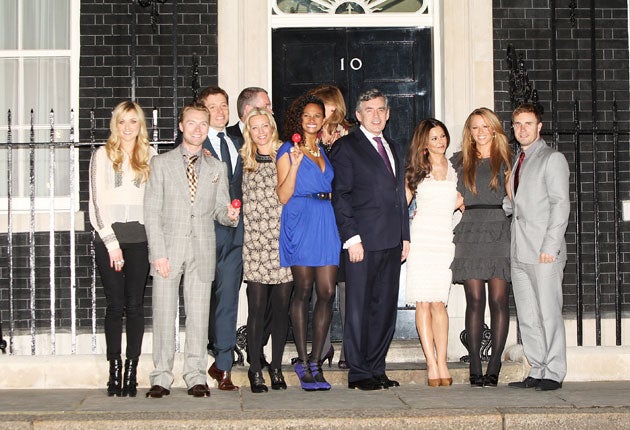Comic Relief takes a battering from weak pound

Your support helps us to tell the story
From reproductive rights to climate change to Big Tech, The Independent is on the ground when the story is developing. Whether it's investigating the financials of Elon Musk's pro-Trump PAC or producing our latest documentary, 'The A Word', which shines a light on the American women fighting for reproductive rights, we know how important it is to parse out the facts from the messaging.
At such a critical moment in US history, we need reporters on the ground. Your donation allows us to keep sending journalists to speak to both sides of the story.
The Independent is trusted by Americans across the entire political spectrum. And unlike many other quality news outlets, we choose not to lock Americans out of our reporting and analysis with paywalls. We believe quality journalism should be available to everyone, paid for by those who can afford it.
Your support makes all the difference.British charities will struggle to deliver their vital overseas aid for the world's most vulnerable people this year, despite the record £58m raised by Comic Relief this weekend.
The weakness of the pound has left charities struggling to deliver aid to some of the world's poorest countries: this year's staggering Comic Relief total will actually buy less aid than in 2007, when the charity extravaganza raised £18m less.
Most UK charities deal in US dollars in their overseas operations. This year's Comic Relief has so far raised £58m, which equates to $80m. In 2007 the £40.5m total bought $82m.
A survey by the Charity Commission of more than 1,000 UK charities to be published this week revealed that 11 per cent were delivering or funding overseas aid. Of those, more than half – 52 per cent – reported problems because of the weak pound. More than a quarter said they were "very significantly or significantly affected".
David Woodbine, finance director of ActionAid UK, said: "Across the board in the last six to nine months the currencies of the countries that we have been working in have been appreciating, so our purchasing power has been dropping by about 20 per cent."
A year ago, ActionAid Ethiopia planned to spend £68,000 to provide water to 21,048 people. But the plummeting international value of the pound and global price rises affecting the cost of piping meant the same £68,000 in 2009 only allowed the charity to build a pump and well system that could reach just 6,250 people.
Oxfam said that over the course of the current financial year the weak pound is likely to cost it around £10m of the total amount the charity spends on its programmes. It also announced that it may have to make between 5 and 7 per cent of its workforce redundant this year.
"In developing countries, the situation is even harder, said Barbara Stocking, chief executive of Oxfam. "Last year, increased food and fuel prices pushed more than 100 million more people into hunger, taking the global total to nearly one billion. Now there is a very real danger that governments around the world will use the downturn as an excuse to cut aid."
However, some believe that charities will come through the crisis. "I think international aid developments still resonate with the public," said Martin Birch, finance director of Christian Aid. "I suspect more so in the current financial climate as people can perhaps relate to the struggles and problems poorer people face, as the poorest suffer first."
Cole effect: Fans follow Cheryl's lead
While, apparently, Cheryl Cole cannot keep her husband Ashley from straying off the front porch, significant numbers of people will, it seems, gladly follow her to the ends of the earth.
In the wake of the Girls Aloud singer's successful ascent of Mount Kilimanjaro for Comic Relief, travel companies said public interest in climbing Africa's highest mountain has soared to 12 times previous levels.
One firm suggested the Cole factor is responsible for a 1,225 per cent increase in inquiries about climbing the Tanzanian mountain.
Another firm, Africa Travel Resource, said that it had recorded around a 25 per cent increase in inquiries.
Join our commenting forum
Join thought-provoking conversations, follow other Independent readers and see their replies
Comments